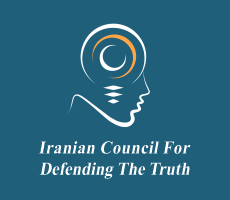Donald Trump was a disaster for the Middle East and for American interests in the region (and elsewhere). He betrayed America’s friends and gave comfort to its enemies. He took the advice of dictators and thugs over the advice of his own diplomats. His policies were either reckless or timid, putting lives at risk. And those policies were motivated by four vile impulses: his admiration for strongmen and would-be strongmen (Muhammad bin Salman, Recep Tayyip Erdoğan, Benjamin Netanyahu), political gain (moving the US embassy in Israel to Jerusalem to garner the votes of Evangelical Christians), whim (threatening to remove US forces from Syria after a heated telephone conversation with Erdoğan), and, most important, reversing every policy and initiative undertaken by his predecessor, Barack Obama (for example, withdrawing from the Iran nuclear agreement)—what a former British ambassador to the United States called “diplomatic vandalism.”
How, then, might a Biden administration differ? Predictions are always difficult and, more often than not, unreliable. At the beginning of the Trump administration, for example, commentators believed that Trump’s daughter, Ivanka Trump, and her husband, Jared Kushner, would act as a moderating influence on the elder Trump. In fact, they fed his worst tendencies.
But we do have three sources we can use to anticipate what Joe Biden might do. The first is statements that he himself has made, both before and during the campaign. The second is his history as a policy maker in the Senate (as senator, he chaired the Senate Foreign Relations Committee). Finally, there are the policies of the Obama administration. During the campaign, Barack Obama reminded audiences that Joe Biden was the last man in the room after a meeting had ended—meaning that Obama relied more heavily on Biden’s advice than on the advice of others. When necessary, Biden acted as Obama’s “enforcer,” browbeating or cajoling presidents and diplomats to get them to go along with Obama’s policies.
Here are seven things we might anticipate from a Biden administration with regard to the Middle East:
- Biden will defer Middle East issues: The coronavirus epidemic has ravaged the United States, in large measure because the Trump administration had no policy dealing with the disease other than denial. During the campaign, Biden focused on the pandemic like a laser, making it his sole focus. He is likely to do the same once he takes office (and he will take office). The Middle East just does not measure up in terms of importance.
There is another reason Biden will defer Middle East issues. While he was vice president, the Obama administration pursued a policy of “pivoting to Asia.” Obama believed that the United States had spent too much blood and treasure in the Middle East and paid too little attention to East Asia and the Pacific Rim—a part of the world that was of vital strategic and economic importance. On the other hand, the Trump administration had continued George W. Bush’s obsessive focus on the Middle East, a region of middling importance to the United States, particularly because of the diminishing importance of oil for the American and global economy. Even so, under the Trump administration the United States had lost ground in region.
- Biden will mend fences with America’s European allies and take a stronger stand against Russia: Trump picked fights with America’s European allies over such issues as trade policy and the size of their monetary contributions to NATO. And his rhetoric estranged European leaders. At the same time, he groveled to Vladimir Putin to such an extent that there were widespread rumors in the United States that Putin must have had some evidence of a secret Trump scandal. Biden is likely to coordinate American policy with Europe, particularly with regard to limiting Russian ambitions abroad. That includes in the Middle East. This has been the American norm for three quarters of a century, until the Trump presidency.
- Biden is unlikely to undertake new military forays in the Middle East: While he was vice president, Biden questioned continuing military operations in Afghanistan. He proposed withdrawing from that unfortunate country while maintaining drone strikes on terrorist targets. In 2005, he called his vote in the Senate authorizing the president to use force against Iraq “a mistake.” It is unlikely that Biden will advocate undertaking some new adventure, particularly since the American people are tired of “endless wars.” He will prefer to spend his political capital on other things.
- Biden will reenter the Joint Comprehensive Plan of Action—the Iran nuclear agreement: Trump vilified Obama’s policy of “engagement” with Iran as “appeasement.” In fact, the newly installed Trump administration contended that “Iran continues to sow violence and remains the most significant challenge to Middle East stability.” In a region that suffers from bad governance, economic stagnation, and is likely to suffer disproportionately from climate change, that, of course, is nonsense.
The only way the United States can pivot to Asia would be if tensions in the Middle East cool. This means diminishing the likelihood Iran will “go nuclear.” This also means giving Iran a “seat at the table” so it might participate in international councils and pursue what it considers to be its strategic interests through diplomacy. Biden has already committed himself to rejoining the treaty.
- Biden will distance the United States from Saudi Arabia: Over the course of the past decade, Saudi Arabia has acted in ways that undermine American values and interests. During the uprisings of 2010-11, it became the headquarters of the counter-revolution and supplied vital assistance to tyrants in Bahrain and Egypt. It has supported jihadists in Syria and is waging a proxy war in Yemen, with horrific results. It has jailed its own dissidents and killed a journalist who was an American resident.
When Trump became president, he pulled the United States and Saudi Arabia even closer. The Saudi crown prince, Muhammad bin Salman, even bragged that he had Jared Kushner “in his pocket.”
Biden will cool American support for Saudi Arabia because the relationship is just not worth it. The United States is virtually energy independent. Because of the Saudi dependence on oil, its economy has stagnated to such an extent that the crown prince had to extort Saudi economic and political elites to raise cash. The Saudi plan to foster a free market, entrepreneurial economy—“Vision 2030”—is bound to fail because the government must continue to gain the loyalty of its population by buying it and the Saudi work ethic is such that the state depends on foreigners for labor. Furthermore, the Saudis seem determined to provoke a conflict between the United States and Iran. America’s relationship with Saudi Arabia was once based on a commonality of interests; all that’s left is a discordance of values.
- Biden will likewise distance himself from Israel: Trump saw the American-Israeli alliance in terms of political gain. He gave Israel everything it wanted, from recognizing its control over the Golan Heights to proposing a “peace” plan that is so one sided that the initial Palestinian reaction was “a thousand no’s.”
But Netanyahu overplayed his hand. He came to the United States to lobby against the Iran nuclear agreement against the express wishes of an administration that included the incoming president. He embarrassed Biden by announcing new settlement construction at a time the vice president was in Israel trying to start a new round of negotiations between Israelis and Palestinians. As a matter of fact, Netanyahu has sabotaged every American attempt to mediate the conflict. Most important, though, is the fact that American interests and Israeli interests have diverged—particularly when it comes to the Iran nuclear agreement and other issues related to effecting a balance of power in the region.
With so much on his agenda, it’s not worth it to Biden to pick another fight with Netanyahu. He is probably not going to move the American embassy back to Tel Aviv, un-recognize Israel’s claim to the Golan, or even try to force Israel into negotiations with Palestinians. Unlike Trump, however, he will keep Israel at a distance until he scores some successes with his domestic agenda.
- Biden will overturn the so-called “Muslim ban.” Early in his presidency, Donald Trump issued an executive order banning travelers from thirteen Muslim-majority and African nations to the United States. Biden has said he will rescind that order “on day one.” Not only does the ban do nothing to enhance the security of the United States, it is racist and Islamophobic. Trump is a racist and Islamophobe. Biden is not.

